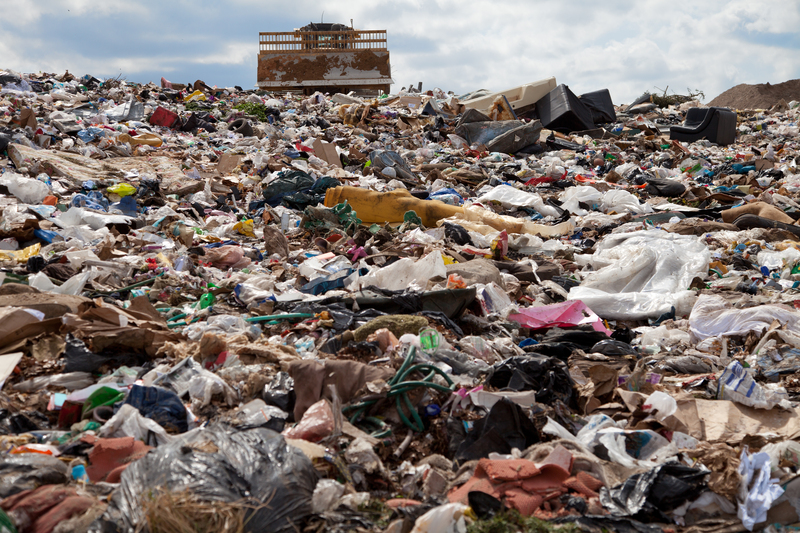Eco-Friendly Methods for Getting Rid of Pots and Pans: A Comprehensive Guide
Are you ready to declutter your kitchen but concerned about the environmental impact of discarding old cookware? Eco-friendly methods for getting rid of pots and pans are not only possible, but they're more accessible than you think! In this guide, we'll explore sustainable ways to dispose of, upcycle, recycle, or donate your used cookware, so you can reduce your carbon footprint and make a positive impact on the planet.

Why Proper Pot and Pan Disposal Matters
Before tossing your cookware into the trash, it's important to consider the environmental consequences. Most pots and pans are made from materials like aluminum, stainless steel, copper, or nonstick coatings, which do not biodegrade and can take centuries to break down in landfills. Worse yet, some nonstick coatings release harmful chemicals as they degrade, further polluting the environment.
Finding sustainable methods for getting rid of old pots and pans helps conserve resources, minimize landfill waste, and can support local communities if your items are reused. Let's explore the best eco-friendly ways to clear out your cookware cupboard guilt-free!
Eco-Friendly Ways to Get Rid of Pots and Pans
1. Donate Old Pots and Pans
One of the best eco-friendly options for unwanted cookware is donation. As long as your pots and pans are still functional (no excessive warping, cracked handles, or flaking nonstick coatings), they can find a second life in someone else's kitchen.
- Local Charities and Thrift Stores: Organizations such as Goodwill, Salvation Army, and community thrift shops often accept used pots and pans. Call ahead to ensure they're currently accepting cookware donations.
- Food Banks and Community Kitchens: Many non-profits preparing meals for those in need will happily accept gently used cookware. This is an excellent way to support food security initiatives while reducing waste.
- Online Platforms: Use platforms like Freecycle, Craigslist, Facebook Marketplace, or Nextdoor to give away old cookware locally. You might be surprised how many students, new families, or hobbyists are happy to pick them up.
2. Recycle Pots and Pans Responsibly
Many people wonder, "Can old pots and pans be recycled?" The good news: yes, most metal cookware can be recycled, but it depends on your location and your local recycling guidelines.
- Scrap Metal Yards: Cookware made of aluminum, cast iron, stainless steel, and copper can be dropped off at scrap metal facilities. These recycle metal more efficiently than curbside programs.
- Municipal Recycling: Some cities accept metal cookware in curbside bins, especially if it is uncoated (no Teflon or enamel) and not combined with plastic or wood parts.
- Nonstick and Composite Pans: These are trickier to recycle due to coatings and mixed materials. Remove any plastic or wooden parts to increase recyclability, or check for specialized programs.
Always check your local recycling center's guidelines before dropping off old pans, as improper recycling can contaminate the process.
3. Upcycle and Repurpose Old Cookware
Transforming worn-out pots and pans into creative and practical items is a sustainable solution that adds personality and function to your home or garden.
- Planters and Pots: Turn saucepans and skillets into unique planters for herbs, succulents, or small flowers. Drill a few holes in the bottom for drainage and paint or decorate them for extra flair.
- Bird Feeders or Baths: Shallow pans make excellent bird feeders or bird baths when hung from a sturdy branch or placed on a pedestal.
- Garden Tools: Cast iron pans or lids can become outdoor decor, stepping stones, or hanging wall art for your garden.
- Storage Organizers: Use large pots or stockpots to organize small tools, kitchen gadgets, or office supplies in creative ways.
With a little imagination, upcycling pots and pans gives them a totally new purpose while keeping them out of the landfill.
4. Return or Trade-In Programs
Some manufacturers and retailers now offer eco-friendly cookware disposal through take-back, return, or trade-in programs:
- Cookware Brands: Companies like Calphalon, Le Creuset, and GreenPan sometimes offer recycling programs for their products. Check company websites for current initiatives or partnerships.
- Retailer Events: Stores such as Bed Bath & Beyond or local cookware shops may host recycling or trade-in events where you can hand in your old pans and receive a discount on new items.
These programs ensure your cookware is disposed of responsibly and that valuable materials are reintroduced into the manufacturing cycle.
Special Considerations: Nonstick, Ceramic & Specialty Pots and Pans
Not all cookware is created equal when it comes to eco-friendly disposal. Here are some special tips for getting rid of hard-to-recycle pots and pans:
- Nonstick (Teflon) Pans: If the coating is flaking or scratched, it's best not to donate due to potential health hazards. Remove as much nonmetal material as possible, then bring them to a scrap yard or inquire with the manufacturer about recycling options.
- Ceramic and Glass Cookware: These rarely go in curbside bins. Check with local recycling centers for drop-off locations or consider repurposing as planters, mosaic materials, or bakeware for non-food uses.
- Anodized Aluminum: While recyclable, the anodized coating sometimes complicates the process. Confirm with your local scrap facility before dropping these off.
- Pots and Pans with Wooden/Plastic Handles: Remove all nonmetal parts to maximize the value for metal recycling and reduce contamination risk.
Reducing Waste Moving Forward: Choosing Sustainable Cookware
Once you've responsibly disposed of your old cookware, consider investing in eco-friendly, durable pots and pans for the future.
- Stainless Steel and Cast Iron: These last for generations, are fully recyclable, and often made from recycled materials themselves.
- Ceramic and Glass: Choose high-quality options free of toxic coatings for longer lifespan and safer eventual disposal.
- Non-Toxic Nonstick: Brands now offer ceramic-based nonstick surfaces free of PFAS and PTFE, which are safer for your health and the environment.
- Buy Secondhand: Shopping at thrift stores or using sharing apps helps reduce manufacturing demand and extends cookware life cycles.
Adopting sustainable choices in kitchenware can drastically reduce your environmental impact over time.

Frequently Asked Questions About Eco-Friendly Cookware Disposal
Can I put old pots and pans in my curbside recycling?
*Rarely.* While some curbside programs accept metal cookware, most require that you bring it to a scrap metal facility. Always check your area's specific guidelines.
Never place glass, ceramic, or coated pans in curbside recycling bins unless explicitly permitted.
What can I do with nonstick pans that are no longer safe to cook with?
If the coating is peeling, these are not safe to donate or use for food. Remove any plastic, then contact a local scrap yard, or check for manufacturer recycling programs. Never burn or landfill Teflon pans if it can be avoided.
Is there a way to repair or recoat old pots and pans?
Some professional services offer re-seasoning for cast iron and re-coating for select nonstick pans. However, for most inexpensive cookware, replacement is recommended. When possible, opt for repair for high-quality items -- it's both eco-friendly and cost-effective.
Conclusion: Make an Impact With Eco-Friendly Pot and Pan Disposal
Decluttering your kitchen doesn't have to mean harming the planet. By choosing one of these eco-friendly methods for getting rid of pots and pans, you make a difference:
- Donating supports community members and local programs.
- Recycling reduces natural resource consumption and landfill waste.
- Upcycling keeps materials in use and sparks creativity.
- Participating in take-back programs drives industry change.
Whether you're upgrading your pots and pans, or simply freeing up space, thoughtful disposal ensures your kitchen cleanup is a win for you and the environment.
So next time you're ready to say goodbye to your old cookware, remember: eco-friendly options are often just around the corner -- and your choices matter!
Let's cook up a greener future together--one pot and pan at a time.
